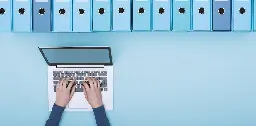Internet Archive's digital library has been found in breach of copyright. The decision has some important implications
Internet Archive's digital library has been found in breach of copyright. The decision has some important implications

theconversation.com
Internet Archive's digital library has been found in breach of copyright. The decision has some important implications

The legal ruling against the Internet Archive has come down in favour of the rights of authors.
